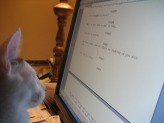Classical music is struggling. Orchestras and opera companies compete to sell tickets, and some have folded. Meanwhile, the least expensive tickets currently available to see a typical Madonna concert at Madison Square Garden cost $119. Such concerts routinely sell out.
At some point since its inception, classical music stopped being cool. Even the name sounds stuffy and old fashioned. The name classical, not to be confused with the Classical Era, implies tied to the past – not fresh and new. By contrast, pop music can be little beyond its name: Popular music.
Classical music was once popular music. Throughout history, new styles of music have come into favor: Jazz, rock, pop, rhythm and blues, and rap, to name a few. Unlike Pop Art in the world of visual arts, many such new styles of music remained beyond the sphere of classical music. Jazz was absorbed only to a small degree. Composers have experimented with jazz and have incorporated jazz chords to add color to their compositions, but Beethoven is rarely programmed with Miles Davis or pop music’s Britney Spears. By contrast, art museum visitors are free to view the Rembrandts and walk down the hall for the Warhols.
Potential ticket buyers are of three types: Conservative classical fans, experimental classical fans, and concert-goers who are not yet fans of classical music.
The conservative classical fans enjoy music primarily from the Baroque, Classical, and Romantic eras. Such concert-goers are more likely to buy tickets to classical concerts, but they are likely to avoid music lying beyond their comfort zone. Sadly, as this group ages, few will join. The tastes of experimental and conservative fans are similar, but the experimental fan’s interests also stretch forward into classical music written by living composers. Such listeners tire of hearing the same pieces programmed in concerts year after year. This group is comprised largely of academics and fans who have both time and patience to listen intently and to explore new music. Concert programmers can successfully please both the conservative and the experimental fans, but concert-goers who are not yet fans of classical music exceed their grasp.
Many pop-classical crossovers who create inferior music contribute to the third group’s distaste for classical music. Crossovers often are banal and inauthentic: They embrace neither pop music nor classical music in their effort to appeal to both.
Some musicians have had luck in both fields: The composer Nico Muhly was recently co-commissioned by the English National Opera and the Metropolitan Opera to compose a new opera, which premiered in London in 2011 and will premiere in New York in 2013. Muhly, who studied with John Corigliano and Christopher Rouse and has worked as a MIDI programmer and editor for Philip Glass, has also collaborated with pop artists Björk, Grizzly Bear, and Sufjan Stevens. Other classically trained musicians, including pianist Tori Amos, violinist Andrew Bird, and composer and violinist Owen Pallett, have left classical music altogether to forge careers solely in popular music.
Tori Amos’s 2011 album Night of Hunters, a series of popular music variations on classical pieces om such composers as Satie, Chopin, and Schubert, fared well on the Billboard charts. At its peak, it reached high positions on the Billboard Top 200, the Billboard Top Rock and Alternative lists, and even peaked at number 1 on the Billboard Top Classical Albums list. Perhaps some of her fans were encouraged to seek out these classical pieces.
Classical musicians provide new hope for bringing popular and classical fans closer together. A new breed of composers has emerged to help fill in the gap between classical and popular music. Judd Greenstein’s music is a mix between already accessible minimalist music and driving pop and rock rhythms. Many of his compositions feature both rock and traditional classical instrumentation with sophisticated harmonic and formal structures. The Ecstatic Music Festival, founded by Greenstein, headlines such indie-classical musicians as himself and indie-pop musicians as Owen Pallett. Here, they combine forces to create concerts of their own music and of collaborations.
Many classical musicians are worried about the future of classical music. It may change form, but the interest for classical music will survive and grow. If musicians from both classical and popular music can be more adventurous and continue to tear down the wall of pretension and disinterest between classical and popular music, both genres will emerge stronger. Perhaps then even orchestras and opera houses will be restored to their former glory.
 RSS Feed
RSS Feed

